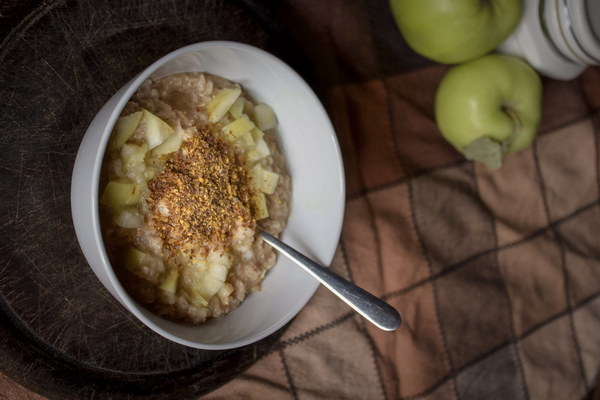Nourishing Your Body Essential Nutritional Tips for Surviving the Start of Winter
As the leaves turn and the world around us transitions into the crispness of autumn, the arrival of the season of winter signals a time when our bodies need extra care and nourishment. The ancient Chinese philosophy of health, known as Traditional Chinese Medicine (TCM), suggests that the body should be fortified to adapt to the changing temperatures and seasonal energies. Here are some essential nutritional tips to help you prepare for the cold months ahead.
1. Embrace Warm, Nutrient-Dense Foods
During the winter months, TCM recommends consuming foods that are warm and nourishing to balance the body's energy, or Qi. Incorporate hearty soups, stews, and porridge into your diet to provide warmth and comfort. These can be made with ingredients like root vegetables, nuts, seeds, and meats, which are naturally warming and provide essential nutrients.
- Root Vegetables: Carrots, beets, turnips, and sweet potatoes are rich in vitamins and minerals and help to boost your immune system.

- Nuts and Seeds: Almonds, walnuts, chia seeds, and flaxseeds are excellent sources of healthy fats, protein, and essential nutrients that support overall health.
- Meats: Lean meats like chicken, turkey, and lean beef provide iron and B vitamins, which are important for energy and immune function.
2. Hydrate Wisely
While cold weather may make us less thirsty, it's still crucial to stay hydrated. Water helps to maintain the body's temperature, aids in digestion, and supports kidney function. Opt for warm drinks like herbal teas or ginger tea, which can also help to soothe the respiratory system.
3. Add Spices to Your Diet
Spices not only add flavor to your meals but also offer health benefits. Cinnamon, ginger, and turmeric are just a few examples of spices that can help to warm the body and support health.
- Cinnamon: Known for its blood sugar-regulating properties, cinnamon can also help to boost metabolism and improve circulation.
- Ginger: This root can aid in digestion, reduce inflammation, and fight off colds and flu.
- Turmeric: A powerful anti-inflammatory, turmeric can support joint health and improve brain function.
4. Include Fermented Foods
Fermented foods like sauerkraut, kimchi, and kefir are rich in probiotics, which can help to maintain a healthy gut microbiome. A strong gut is essential for overall health, as it plays a crucial role in immune function and nutrient absorption.
5. Prioritize Omega-3 Fatty Acids
Omega-3 fatty acids are essential for brain health, joint mobility, and reducing inflammation. Incorporate fatty fish like salmon, sardines, and mackerel into your diet, or consider taking a high-quality omega-3 supplement to ensure you're getting enough of this important nutrient.
6. Support Your Immune System
As winter approaches, it's important to support your immune system to fight off the common colds and flu that are more prevalent during the colder months. Foods high in vitamin C and vitamin D can help to strengthen your immune system.
- Vitamin C: Citrus fruits, strawberries, kiwi, and bell peppers are all excellent sources of vitamin C.
- Vitamin D: Spend time in the sunlight to boost your vitamin D levels, or consider a supplement if you live in a region with limited sun exposure.
7. Adjust Your Diet According to Your Body Type
In TCM, it's believed that each person has a unique constitution that determines how they respond to the environment. Understanding your body type can help you tailor your diet to maximize your health during the winter months.
By following these nutritional tips, you can help ensure that your body is well-prepared to face the challenges of winter. Remember, the key is balance and variety, so enjoy a warm, nourishing diet that includes a range of seasonal produce and warming foods. Stay healthy and warm this winter season!









